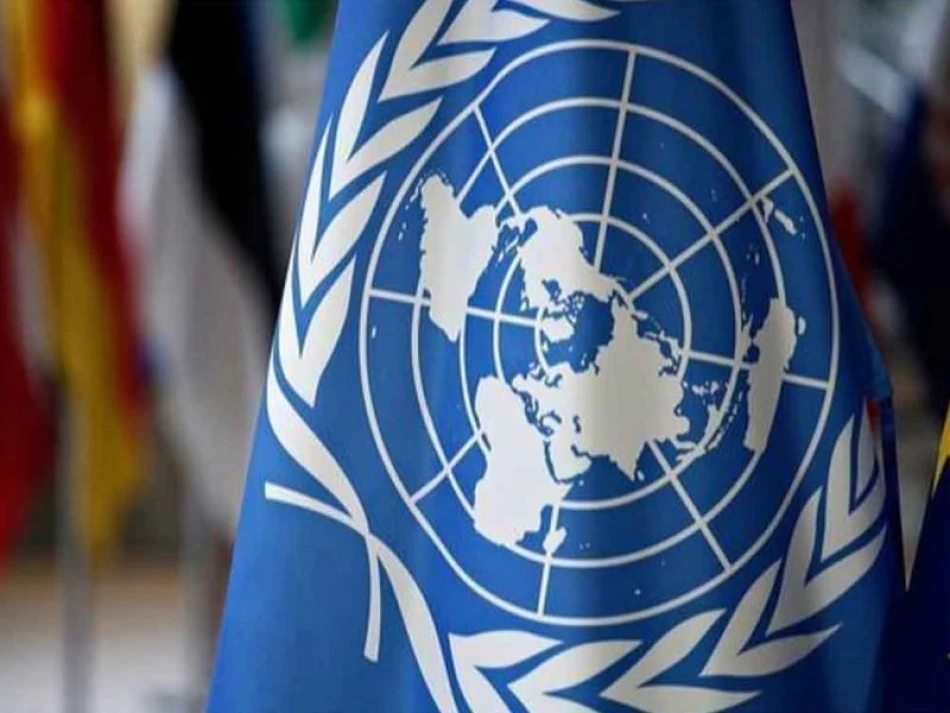
UN Reaffirms Rejection of Israeli Settlements in West Bank
UN Condemns Israel's Strategic Settlement Expansion as Two-State Solution Faces New Threat
The United Nations has issued a sharp rebuke of Israel's announcement to resume construction in the strategically crucial E1 corridor of the West Bank after more than two decades of frozen development. The move, announced by Israeli Finance Minister Bezalel Smotrich, represents a calculated escalation that could effectively sever the northern and southern West Bank, dealing what the UN calls a severe blow to prospects for a geographically contiguous Palestinian state.
Strategic Geography at the Heart of the Dispute
The E1 corridor holds outsized importance in the Israeli-Palestinian conflict due to its location between Jerusalem and the major settlement of Ma'ale Adumim. UN Secretary-General spokesperson Stéphane Dujarric emphasized in Thursday's statement that construction in this area would physically separate the northern and southern West Bank, undermining the viability of any future Palestinian state under a two-state framework.
This geographical fragmentation has been a long-standing concern of international mediators. Previous Israeli governments, including those led by right-wing leaders, had maintained an informal moratorium on E1 construction precisely because of its potential to trigger international backlash and complicate peace negotiations.
Timing Reveals Strategic Intent
Smotrich's announcement carries particular significance given its explicit framing as a response to international recognition efforts for Palestinian statehood. The Finance Minister stated that the settlement project aims to "respond practically to any international attempts to recognize a Palestinian state through the establishment of homes, neighborhoods, roads and supporting the lives of Jewish families."
This represents a shift from previous settlement expansions that were often justified on security grounds or presented as natural growth. Instead, the current move appears designed as a preemptive strike against diplomatic initiatives, signaling Israel's intention to create irreversible facts on the ground.
Legal Framework Under Renewed Scrutiny
The UN statement notably referenced the International Court of Justice's advisory opinion from July 19, 2024, which reinforced the legal obligations regarding settlement activities. This citation suggests growing international coordination in challenging Israeli settlement policy through legal mechanisms rather than purely diplomatic channels.
The reference to the ICJ opinion also indicates that international bodies are increasingly willing to invoke formal legal frameworks rather than relying solely on political pressure. This evolution could signal a more assertive international approach to the settlement issue in the coming years.
Implications for Regional Stability
The UN's warning that settlements "entrench occupation, fuel tensions, and systematically undermine the possibility of establishing a Palestinian state" reflects broader concerns about regional stability. The E1 project's resumption comes at a time when the Abraham Accords have created new regional dynamics, potentially complicating Israel's relationships with Arab partners who have called for progress on Palestinian statehood.
The timing also coincides with ongoing efforts by various international actors to revive peace processes, suggesting that the settlement announcement may be intended to foreclose diplomatic options before they gain momentum. This tactical approach mirrors strategies used during previous peace initiative cycles, where settlement expansion served to alter negotiating parameters.
Broader Pattern of Settlement Strategy
The E1 announcement represents more than an isolated development decision—it reflects a systematic approach to using settlement construction as a tool of statecraft. By explicitly linking the project to countering Palestinian statehood recognition, Israeli officials have made clear that settlements serve strategic political objectives beyond housing Jewish residents.
This transparency about settlement motivations may prove counterproductive internationally, as it undermines arguments that such construction serves legitimate civilian needs rather than political goals. The explicit acknowledgment could strengthen legal challenges and international pressure campaigns focused on the political nature of settlement expansion.
Most Viewed News

 Sara Khaled
Sara Khaled






